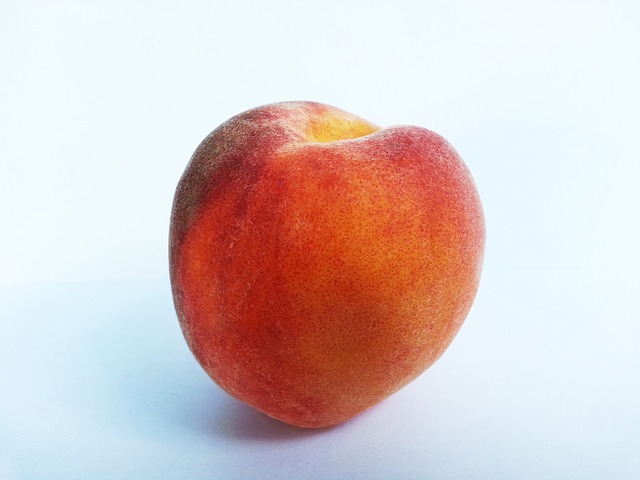Behaviour changes and strategies after brain injury

Brain Injury and Fundamental Attribution Error - impressive party conversation!
I remember during the lecture the presenter outlined the potential impact of brain injury and Fundamental Attribution Error (FAE). I remember the topic of the talk was challenging behaviour after brain injury. I remember the presenter was a Scottish guy who focussed on people with significant behaviour issues after brain injury. I remember while new to me, the theory made sense. So much so, I remember it still… And I remember thinking - Fundamental Attribution Error (FAE) - that’s a topic sure to impress at a party! No not really. Today my bumbling attempt to talk about the link between attribution theory and how behaviour after brain injury is responded to. We might all benefit from understanding more about it so help me out here. Sharing knowledge is always a good thing. I am no expert on all of this. What I aim to do is to share some stuff I have picked up. If you are an expert, or if you have some great resources about…
PEACH is a simple tool supporters can use when gathering information about a person and their brain injury. It can help to understand the bigger story. PEACH is particularly useful when behaviour is challenging. First though – a little disclaimer – I know I am always disclaiming myself from something. I just like to be clear. A Little Disclaimer about PEACH and Gathering Information About Brain Injury: This tool I am sharing has been used mainly by people working with people with brain injury. This tool might also be useful as a self directed thingy if you are someone living with brain injury - I have not tested this out. You could give it a go. If you are family member or friend– same, same – it might be helpful. Feel free to try it out - or you could skip today's article but please come back next week. I do hope there is something here for everyone. If it…
Changed behaviour, Behaviours of concern, Difficult behaviour, Bad behaviour, Challenging behaviour after brain injury – . Whatever term you use, it is one of the BIG topics in brain injury. It can mean challenges for the person living with brain injury, their family and friends, supporters, and community members. Behaviour changes can be mild to severe. From creating difficulties in social situations, to unlawful behaviour. From awkward moments to harmful, even dangerous behaviours. My challenge to myself for today is to take a BIG topic and turn it into a small article and still be useful. Just to let me off the hook a little: Over time I will cover more about behaviour and will link back to this article (remind me) so it becomes a hub of resources for Challenging Behaviour After Brain Injury. That is my vision, let’s see what happens. Why Do We Need to Know About Challenging Behaviour After Brain Injury? [unordered_list style="tick"] Challenging behaviour after…
How do you manage sudden or escalating challenging behaviour after brain injury, or any time? Damage to the brain, for example the frontal lobe, can sometimes cause changes in behaviour after brain injury. Sometimes this results in behaviour that challenges supporters and people around. It can also result in behaviour that is unpredictable. Even with an agreed behaviour plan in place; sudden, explosive or escalating behaviour can still occur. This will often need immediate support and management from family, supporters, or people who are close by. It can be difficult to respond quickly and effectively when you are taken aback by the behaviour, you are in a public space, it is a behaviour you find difficult to tolerate it is something you have not managed before. Responding To Immediate Challenging Behaviours When you are with a person who has unpredictable challenging behaviours, the likelihood of needing a strategy ‘on the run’ to call on in emergency situations is high.…
'Lack of insight' describes a common outcome of brain injury. I believe this term needs great care to understand properly and respond to appropriately. It takes a careful, thoughtful, approach to see it as a description; an outcome of brain injury; and not a criticism, or a negative comment. For people with brain injury this is a real outcome caused by damage to the brain. It is not deliberate. Maybe using the correct term ‘Anosognosia’ would help depersonalise the term. If you heard a person had ‘anasognosia’ would you think and respond differently, than hearing a person has a 'lack of insight after brain injury'? How Does Lack of Insight After Brain Injury Happen? Insight refers to a person’s ability to see their situation as it is. The skills needed to do this effectively are managed mainly by the frontal lobes. If damage occurs to the frontal lobe of the brain, there may be difficulties recognising and accepting changes. Difficulty seeing…
Back to basics with a look at the potential changes and outcomes of brain injury. In brief - if we think about the brain controlling everything we do: then damage to the brain can affect everything we do. Seven points to remember about the outcomes of brain injury Before talking more about specific outcomes here are seven points to remember: Brain injury is complex and difficult to fully understand. An organ that can boast 100 billion cells has got to hold a few surprises for us all. Mostly the part of the brain damaged will determine the physical and cognitive effects. All parts of the brain are closely linked and work together so predicting the exact outcome can be difficult. The combinations of cognitive and physical effects following brain injury are different for every person. The outcome is random. Many years ago Headway Victoria in Australia used the analogy of acquiring a brain injury being like dealing a deck of cards, you…
Understanding and managing changes to behaviour after brain injury is the most frequently requested topic I can recall. It contributes significantly to lifestyles being restricted. Today a simple start by thinking about changes to behaviour after brain injury by ONEs! There is no ONE solution for changed behaviour after Brain Injury Many, many, many supporters and family members over the years have asked for the magic potion, the one solution that will fix all, the magic wand that will make an unwanted behaviour disappear. Unfortunately we have not found it yet. Mostly, it is less stressful to forget magic solutions and begin the longer, but potentially more productive, path of planning and developing tailor made strategies for each behaviour. ONE strategy does not fit all Not only is there is no one solution for changing behaviour after brain injury, there is no one strategy to fit all situations and all people. The complexity and differences between people with brain…
If you are wondering what King Henry VIII brain injury and behaviour change have in common. A clue - It is part of fascinating research into the life and health of King Henry. Read on for more: KING HENRY VIII AND THE JOUSTING INCIDENT In 1536, King Henry was taking part in a jousting match, a sport where opponents on horseback joust (or fight) armed with long heavy spears, wearing a full suit of armour. During this match King Henry fell from his horse. The horse then fell on top of him. He was unconscious for a time and it was thought he would not survive. His queen at the time, Anne Boleyn, was distraught. It was following this incident, his behaviour and personality apparently changed considerably. It is thought this resulted from frontal lobe damage. If you are interested in more about King Henry, brain injury and behaviour change, you can read more in this article “The Jousting Accident…
Lazy, manipulative, attention-seeking! Have you heard people using those, or similar terms when describing the behavior of someone living with brain injury. Not very helpful is it? It kind of suggests a deliberate tone to the behavior. Maybe at times you have thought what you are seeing is personally directed at you. I will tell you upfront I get a bit steamed up on this topic. So I really want to talk about this and try and give you some alternative strategies. At some point we all have moments where we think whatever is happening, is personal - it's designed to get at me. Think about the impact this has. Taking behaviours as intentional and personal, seeing behavior as deliberate, believing a person with brain injury is personally getting at you, it can be exhausting for you. It is not helpful for you, (the supporter),it is not helpful for the person with brain injury, and it is not at all beneficial to…



